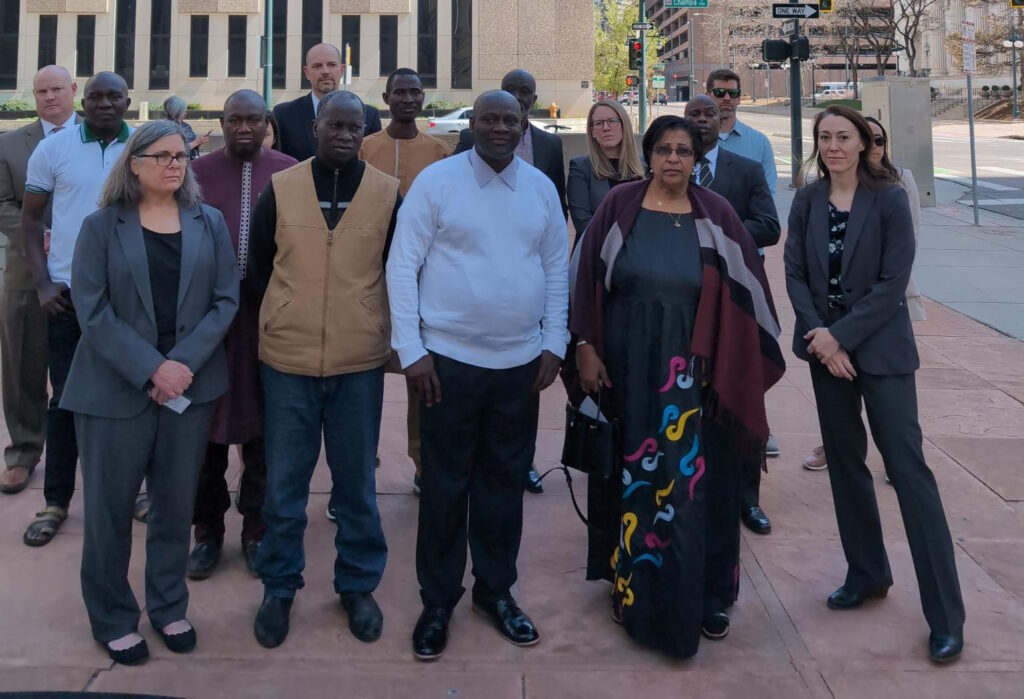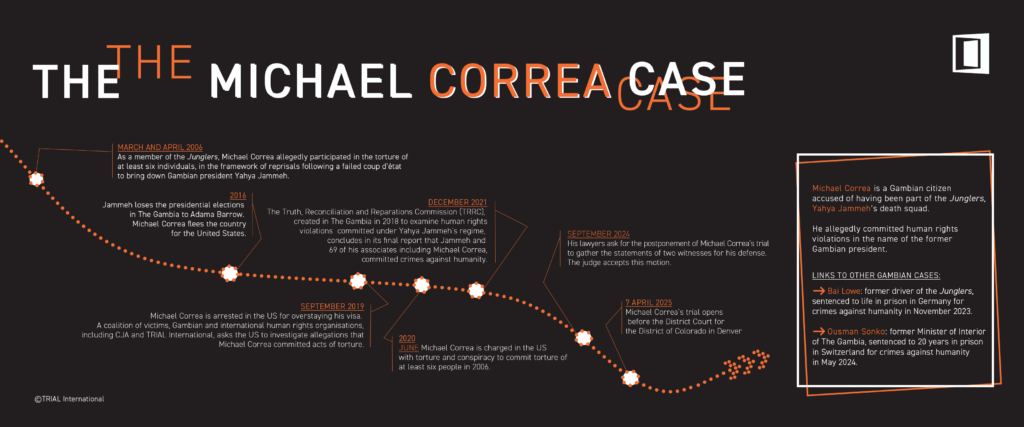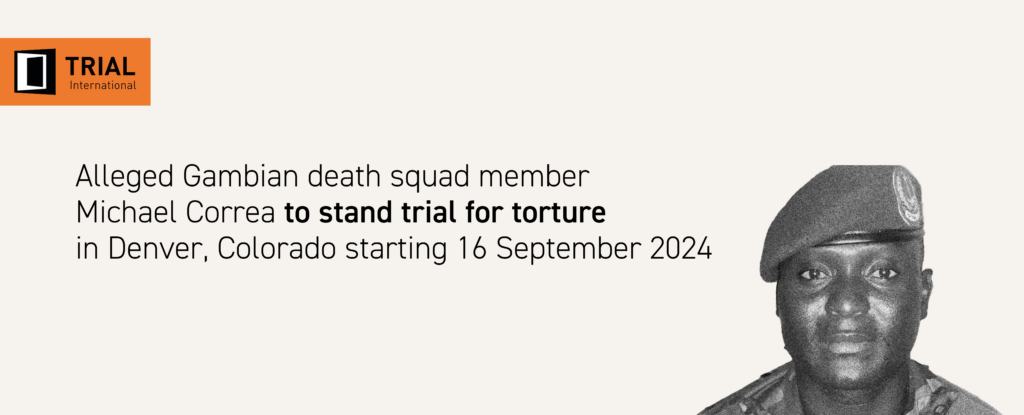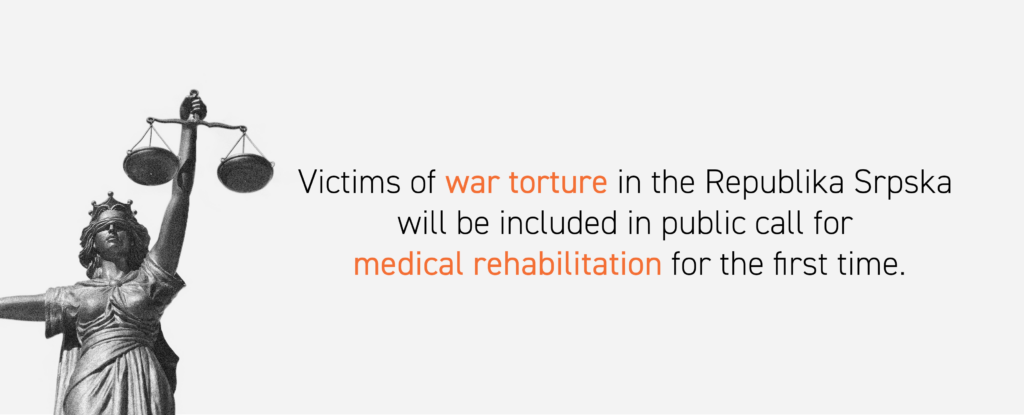Enforced disappearances of Sejad Hero and Ramiz Kožljak in July 1992
In April 2010, TRIAL submitted a communication to the United Nations Human Rights Committee concerning the enforced disappearance and alleged arbitrary execution and the subsequent concealment of the mortal remains of Sejad Hero and Ramiz Kožljak occurred in July 1992.
On 4 July 1992 members of the Yugoslav National Army (Jugoslovenska Narodna Armija – JNA) surrounded the village of Tihovići and arbitrarily apprehended about 13 civilians, including Sejad Hero. Accordingly to eyewitnesses, the men were taken to a meadow in Tihovići where they were tortured and mutilated. Allegedly, they were afterwards arbitrarily executed by members of the JNA, who then set fire to the dead bodies and finally transferred the mortal remains to a nearby stream in Tihovići. The fate and whereabouts of Sejad Hero remain unknown since he was apprehended by members of the JNA and his mortal remains have not been located, identified and returned to the family for mourning and burial. After having learned about the massacre of the 13 men, in order to save his life Ramiz Kožljak decided to escape towards the nearby village of Vrapče, which was under the control of the BiH army. The whole area surrounding Vrapče was under the control of the JNA. Allegedly, Ramiz Kožljak was also captured and arbitrarily executed by members of the JNA. However, his mortal remains have not been located, exhumed, identified and returned to his family and his fate and whereabouts remain unknown since then.
More than 18 years after the events, no ex officio, prompt, impartial, thorough and independent investigation has been undertaken by BiH authorities to locate Sejad Hero and Ramiz Kožljak or their mortal remains or to identify, prosecute and sanction those responsible for the mentioned crimes. Tija Hero, Ermina Hero, Armin Hero, Emina Kožljak and Sinan Kožljak have taken several steps to obtain information about their loved ones, through, among others, the police of Visoko, Ilijza and Vogošća, the State Commission for Tracing Missing Persons, the Sarajevo Cantonal Prosecutor’s Office, and the Red Cross Society of BiH. To date, these initiatives have proved vain. Tija Hero, Ermina Hero, Armin Hero, Emina Kožljak and Sinan Kožljak are all active members of the Association of Families of Missing People from Vogošća.
On 23 February 2006 the Constitutional Court of BiH, seized by several families of victims of enforced disappearance from Vogošća, including Mrs. Tija Hero and Mrs. Emina Kožljak declared a violation by BiH of the right not to be subjected to torture and inhuman and degrading treatment and the right to respect for private and family life of the relatives of disappeared persons. Accordingly, the Court ordered the domestic institutions concerned to disclose all available information on the fate and whereabouts of the disappeared people, including Sejad Hero and Ramiz Kožljak. On 16 November 2006 the Constitutional Court adopted another ruling, whereby it declared that the Council of Ministers of BiH, the government of the Republika Srpska, the government of the Federation of BiH and the government of the Brčko District of BiH failed to enforce its previous decision. Nevertheless, Tija Hero, Ermina Hero, Armin Hero, Emina Kožljak and Sinan Kožljak have not received any relevant information about their loved ones from the mentioned institutions.
Consequently, Tija Hero, Ermina Hero, Armin Hero, Emina Kožljak and Sinan Kožljak request the Human Rights Committee:
to find that Sejad Hero and Ramiz Kožljak are victims of a violation of Article 2.3 (right to a remedy) in conjunction with Articles 6 (right to life), 7 (prohibition of torture and inhuman and degrading treatment), 9 (right to liberty and security of person), and 16 (right to be recognized as a person before the law) of the International Covenant on Civil and Political Rights, due to the ongoing failure of BiH authorities to conduct an ex officio, prompt, impartial, independent and thorough investigation on their apprehension and alleged ill treatment and arbitrary execution, in order to establish their fate and whereabouts, as well as to identify those responsible for these crimes and to prosecute, judge and sanction them;
to find that they are victims of a violation by BiH of Article 2.3 (right to a remedy) in conjunction with Article 7 (prohibition of torture and inhuman and degrading treatment) of the Covenant, because of the severe mental distress and anguish caused by the enforced disappearance and alleged arbitrary execution and the subsequent concealment of the mortal remains of Sejad Hero and Ramiz Kožljak and the ongoing lack of information about the cause and circumstances of their loved ones’ disappearance and alleged arbitrary execution as well as on the progress and results of the investigations carried out by BiH authorities; and that, in the cases of Ermina Hero and Armin Hero, until 21 June 2004 and 28 December 2008 respectively, the mentioned provisions were violated in conjunction with Article 24.1 of the Covenant, as they were minors;
to request BiH to order independent investigations as a matter of urgency with a view to locate Sejad Hero and Ramiz Kožljak and, if necessary, to exhume, identify, respect and return to the families their mortal remains;
to request BiH to bring the perpetrators of the arbitrary deprivation of liberty, enforced disappearance and alleged arbitrary execution of Sejad Hero and Ramiz Kožljak before the competent civil authorities for prosecution, judgment and sanction without any further delay; and
to request BiH to ensure that Tija Hero, Ermina Hero, Armin Hero, Emina Kožljak and Sinan Kožljak obtain integral reparation and prompt, fair and adequate compensation for the harm suffered.
The General Context
It is estimated that between 100,000 and 200,000 persons died as a consequence of the conflict (1992-1995) in BiH and that between 25,000 and 30,000 were victims of enforced disappearance. Approximately 10,000 people remain disappeared to date.
The cases of Sejad Hero and Ramiz Kožljak occurred in the context of a first wave of enforced disappearances and “ethnic cleansing” operations perpetrated by the Serb army in the spring and summer of 1992.
Notwithstanding the existence of strong evidences on the identity of those responsible for the enforced disappearance and alleged arbitrary execution and the subsequent concealment of the mortal remains of Sejad Hero and Ramiz Kožljak, to date no one has been convicted, prosecuted and sanctioned for the mentioned crimes, thus fostering an overall climate of impunity. Up to this day, the families of men disappeared and arbitrarily executed in Tihovići have not received any information on the fate and whereabouts of their loved ones and have not had the possibility to mourn and bury their relatives in accordance with their religious customs and beliefs
The Decisions
The UN Human Rights Committee dealt with the cases separately. On 28 October 2014, it adopted two decisions respectively on the case of Mr. Sejad Hero and Ramiz Kožljak. The Committee found Bosnia and Herzegovina internationally responsible for the violation of several provisions of the International Covenant on Civil and Political Rights, including the rights to life and personal liberty and the prohibition of torture. In particular, the Committee declared that the State is responsible for not having effectively investigated the arbitrary deprivation of liberty, ill-treatment, and enforced disappearance of Mr. Sejad Hero and Ramiz Kožljak, and also for having subjected their relatives to inhumane and degrading treatment because it has not unveiled the truth about their fate and whereabouts. Moreover, the Committee affirmed that forcing relatives of disappeared persons to declare their family members dead in order to receive compensation constitutes an inhumane and degrading treatment.
The Committee requested Bosnia and Herzegovina to:
– Establish the fate and whereabouts of Mr. Sejad Hero and Ramiz Kožljak;
– Make sure that its investigators contact the applicants as soon as possible to gather the information they can contribute to the investigation, and bring to justice those responsible for the crimes concerned without unnecessary delay;
– Ensure that the applicants receive adequate compensation;
– Amend the existing legal framework to make sure that compensation for relatives of disappeared people is not conditioned upon obtaining a death certificate.
Bosnia and Herzegovina has now 180 days to inform the Committee about the measures taken to implement the decisions.









